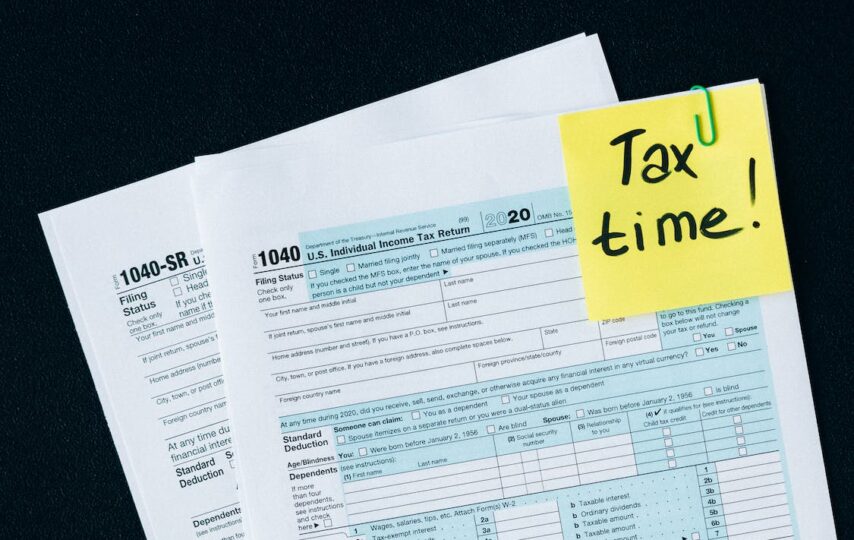Tax benefits can significantly reduce payable tax by companies in the first years of operation and later. Despite being one of Europe’s smallest countries, the Netherlands has a network of tax treaties, a competitive corporate income tax rate, and a full participation exemption for capital gains and dividends, among other benefits.
Given the many tax benefits, the Netherlands is one of the best places to set up a company. Whether you want to start from scratch or open a branch, you have all the right reasons to do so in the country. Read on to learn more about the Netherlands’ corporate tax regime and the benefits you will enjoy.
Reasons To Start a Company In the Netherlands
The Netherlands provides a favorable business environment with several benefits that make it appealing for companies to set up shop there. So, here are reasons to register a company in the Netherlands now:
- Low Corporate Tax Rate
One of the major draws for international companies to set up shop in the Netherlands is the low corporate tax rate. The corporate tax rate in the Netherlands ranges between 20 and 25%, depending on company size. As a result, it has one of the most competitive tax rates in Europe, if not the world.
The Netherlands also has a variety of tax breaks, such as the R&D tax credit and the Innovation Box, which can help to reduce the effective tax rate even further. Furthermore, the Netherlands has a favorable tax climate for international companies.
It makes it an appealing option for companies looking to establish a presence in Europe.
- Access to European Markets
The Netherlands has a modern, open economy and well-developed infrastructure. It is a member of the European Union and has close economic ties with the rest of Europe. As a result, for businesses looking to export their products or services, the country provides excellent access to European markets.
The free movement of goods, services, capital, and people across the EU can benefit Dutch businesses. Companies can set up shop in the Netherlands and benefit from a low corporate tax rate and access to a large and well-educated workforce. The Netherlands also has a well-developed financial services sector, making it an excellent choice for businesses seeking to finance their operations.
The Dutch government actively promotes foreign investment and the development of new products and services. The Netherlands is an active European Economic Area (EEA) member, which gives businesses access to the European Common Market and the European Investment Bank.
The Netherlands is also a member of the World Trade Organization (WTO) and the Organization for Economic Cooperation and Development (OECD) (OECD). These organizations serve as a conduit for businesses to gain access to global markets and free trade agreements.
- Highly Educated Workforce
The Netherlands is well-known for its well-educated workforce. Indeed, the Dutch government reported in 2019 that nearly 75% of the population aged 25-64 had completed some form of higher education. It is significantly higher than the OECD average of 37%.
As an investor or company owner, the highly educated workforce is a significant benefit because it allows you, as an employer, to access qualified personnel. Furthermore, the skilled labor force contributes to the Netherlands’ strong innovation and knowledge economy, which is a major driver of economic growth.
- English Speaking
English is the official language of the Netherlands in many fields, including business and government, and many Dutch people speak it as a second language.
English is also used in the media and is taught in most schools beginning at a young age. Because Dutch people speak English well, it is relatively easy to communicate in English in the Netherlands.
- Creative Culture
The culture of the Netherlands is vibrant, with a strong emphasis on creativity and innovation. It is home to many well-known painters, writers, and musicians and a thriving fashion and design industry. The Netherlands is also known for its distinctive architecture and numerous world-renowned museums.
The country also has a long history of free expression and a thriving nightlife scene. The Netherlands provides an ideal environment for creative expression, from its vibrant cultural festivals to its excellent public transportation network, making it the best place to explore the arts.
Corporate Tax In The Netherlands
Source: pexels.com
In the Netherlands, the corporate tax rate is 25%. A company’s profits determine taxable income. Except for companies eligible for the Dutch innovation box, the tax rate applies to all businesses.
Companies must pay a withholding tax on dividends and interest payments made to non-residents in addition to the corporate tax. The rate of this withholding tax is 15%.
Many countries have signed Double Taxation Avoidance Agreements with the Netherlands, allowing businesses to reduce the tax they owe on profits made outside of the country.
Companies must also pay Value Added Tax (VAT) on all goods and services they sell. The typical rate is 21%.
Tax Benefits for Companies
Companies in the Netherlands can benefit from a variety of tax benefits. These incentives include but are not limited to the following:
- Corporate Tax
In the Netherlands, the corporate tax rate is 25%. This rate applies to domestic and foreign companies with corporate tax registration in the Netherlands. If you compare it to other countries, you will find that this is favorable.
The Netherlands also provides several tax breaks to companies doing business there. The Innovation Box and the Patent Box are two examples. The Innovation Box reduces the effective tax rate on profits from R&D activities to 5%, while the Patent Box reduces the effective tax rate on patent profits to 10%.
- Tax Credits
Individuals and businesses in the Netherlands are eligible for various tax credits. These credits can reduce the amount of tax owed while providing incentives for certain activities. The Wage Tax Credit is the most popular in the Netherlands (WTC).
Employees can apply for this credit depending on their annual income. It is calculated as a percentage. The applicable Dutch tax brackets determine the amount available. In addition, there are several other tax credits available in the Netherlands.
- The Housing Tax Credit (HTC)
- The Mortgage Interest Deduction (MID)
- The Energy Tax Credit (ETC)
- The Childcare Tax Credit (CTC)
- The Personal Care Tax Credit (PCTC)
Each of these credits can help to reduce the total amount of tax owed.
- Double Taxation Agreements
The Netherlands has signed over 80 Double Taxation Agreements (DTA) with countries all over the world. Generally, these agreements provide lower withholding taxes on payments made from the Netherlands to a foreign resident and low or eliminated taxation on certain types of income earned in the foreign country.
Aside from the DTA, the Netherlands has signed many agreements with other countries to avoid double taxation on certain types of income. These include agreements to avoid double taxation on royalties, dividends, interest income, and information exchange.
- Start-Up Incentives
The Dutch government provides numerous start-up incentives. Whether an entrepreneur or a startup, you are entitled to many benefits for starting and running your business in the country. The incentives include:
- Business incubators
- Financial support
- Expansion support
- Research and development incentives
- SME tax incentive
You might enjoy some or all of these if you understand how each works. They are meant to help your startup grow fast.
- Appealing Tax Regime
The Netherlands has a sophisticated and appealing tax system for businesses and individuals. The country has a corporate income tax rate of 25% on business taxable profits, while the top individual income tax rate is 52%. Individuals earning more than €68,507 per year are subject to this rate.
The Netherlands also has a very favorable tax regime for capital gains. The standard capital gains tax rate is only 25%, and capital losses can be deducted from earnings. It means that investors may benefit from lower investment taxes.
Frequently Asked Questions
Here are some of the most frequently asked questions about tax benefits for companies in the Netherlands:
- Are Corporate Taxes Favorable In The Netherlands?
Yes, the Netherlands has some of the most favorable tax regimes in Europe and worldwide.
- Must I Be a Citizen To Run a Company In The Netherlands?
No, you can start a company and operate it even if you’re a foreigner. You only need to meet all the requirements relating to your visa.
- Are There Opportunities and Incentives for Startups In The Netherlands?
Yes, you can access some of the world’s largest markets from the Netherlands. You only need to be strategic and learn about various markets and opportunities.
Conclusion
In conclusion, tax benefits are valuable for a variety of reasons. They can help reduce taxable income, lowering the amount of taxes owed. Also, tax advantages can help individuals and businesses save money while increasing their disposable income.
You have learned the tax benefits for companies in the Netherlands. Notably, such benefits can help to provide incentives for businesses to invest in their operations, leading to increased productivity and economic growth. Enjoy these benefits!








